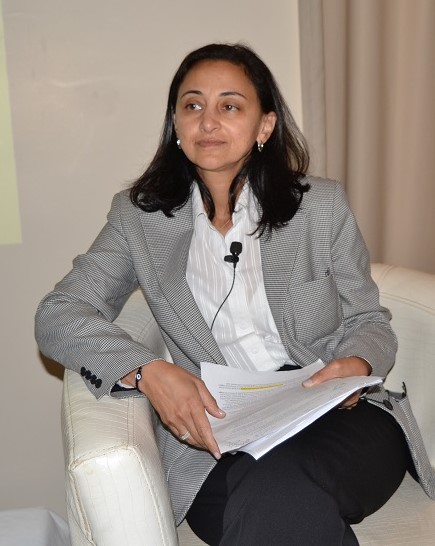By Heba Ramzy, Director, Corporate Affairs at Microsoft
 Although schools around the Middle East and Africa (MEA) region are only just coming to the end of the academic year, many governments have been taking stock for much longer and considering what is required to ensure positive learning outcomes when the new year begins. From the conversations that I’ve been having, it’s clear that a transformation is in place, as education ministers look for ways to solve a range of challenges and implement a vision of 21st century learning in education.
Although schools around the Middle East and Africa (MEA) region are only just coming to the end of the academic year, many governments have been taking stock for much longer and considering what is required to ensure positive learning outcomes when the new year begins. From the conversations that I’ve been having, it’s clear that a transformation is in place, as education ministers look for ways to solve a range of challenges and implement a vision of 21st century learning in education.
The current situation reminds me of the days when computers were first introduced in schools, some 15 to 20 years ago. The focus was on the devices, while capacity building, curricula adaptation and school management system modernization were completely overlooked. Educators had the right tools in order to create a quality learning environment, but not the right environment to actually deliver this learning to students effectively. The journey of transforming the education system to be student-centered and create critical learners and thinkers was not achieved. Thanks to these experiences, governments are now better equipped to drive today’s transformation journey for an impactful 21st century education system.
Ensuring success requires strong education policies that take a holistic approach, as well as a strong focus on quality teachers. It’s important that teachers stay ahead of the curve, particularly as technology has become an integral part of the lives of students at an early age. However, a holistic approach needs to include: online curricula, digital assessment, and innovative methods for teaching and education management, access and relevant devices.
As we look to the new academic year, there are three key trends having an impact on education policy across the region:
1. Closing the youth unemployment gap
At the World Economic Forum in Africa last month, leaders from across the globe discussed how we can create jobs for young people in the Middle East and Africa. With more than half of its population under 20 years old, current youth unemployment levels have a huge impact, and it’s critical that young people are enabled, skilful and involved in meaningful professions to advance the economies.
To help close this gap and leverage the untapped talent across the region, it’s vital that the private and public sector work together. One example here is in Egypt, where Microsoft’s 4Afrika initiative helped to set up youth centers across the country. The centers focus on providing a platform for young people to develop apps, and their IT and business skills, putting them in good stead for the future workplace.
These centers provide access points for young people to learn, use modern tools such as software, hardware and cloud – allowing students to acquire vital skills that will help them realize their potential – a window to the world. Today, through these centers, we have reached more than seven million youth.
2. Improving access to realize the benefits of modern technology
Access to technology, and in particular cloud services and smart devices can serve as a great accelerator for educational growth in MEA. We’re starting to witness new innovative ideas to address the infrastructure and improve broadband access, but there is still more to be done in large parts of the region. It is critical to look for affordable access, to enable each person to leverage the power of new technology.
One way to help build these networks is using white spaces spectrum to provide access to students and small businesses. Earlier this year, Spectra Wireless and Microsoft 4Afrika launched Africa’s first commercial service network utilising TV white spaces in Ghana. This gives students access to affordable, high speed internet bundles and devices.
3. Data management to ensure Privacy of Students data
Data protection has become top of mind for government, enterprise and consumers.Students, parents, educators and ministers of education are paying more attention to their data privacy and security. They are keen on understanding who can access their data, how is it being processed, and where is it being stored. In the MEA region, we are beginning to see an increased focus and concern around the issue of data protection, and governments are looking into developing relevant policies to ensure that data is secure and their student’s privacy is respected. A recent study by the Nigerian Institute of Advanced Legal Studies highlighted the importance of having privacy and security policies in the education sector.
A number of countries started enhancing their privacy laws, but more are working on drafting data protection laws.
Regardless of local policies, we hold the belief that student data belongs to the student, and that it should not be used as a commodity to be monetized for profit.
—
As governments look to the changes needed to equip students with the skills required to help them achieve more in life, there are a number of factors to consider. In Emerging market we need to look into three key areas: affordability, access and relevance to enable youth to leverage the power of technology regardless of location. In order to accelerate progress, it important that governments, private sector and civil society join hands; it’s crucial that we work together to combine our collective expertise, resources to empower every student, teacher, administrator to do more, and achieve more.




